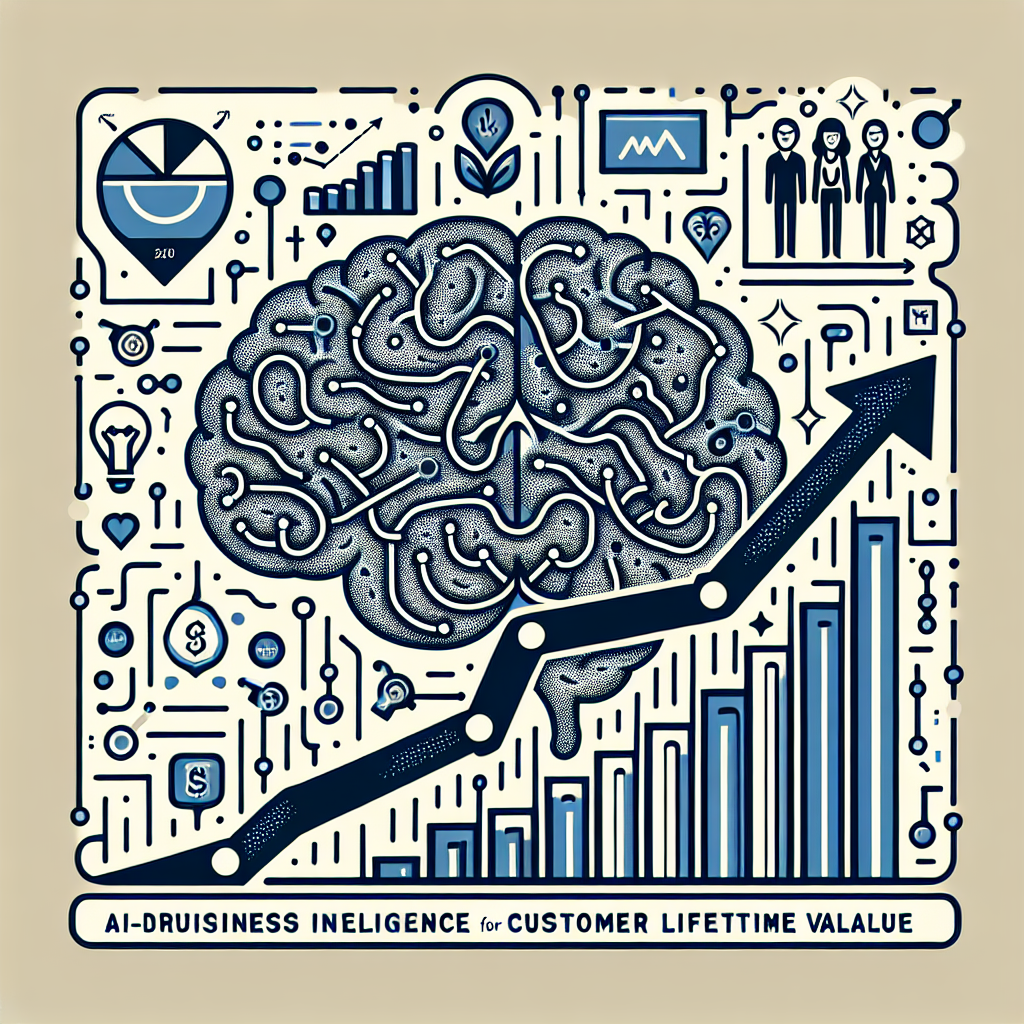Artificial Intelligence (AI) has revolutionized the way businesses operate, especially when it comes to customer relationship management. One of the key areas where AI is making a significant impact is in the field of Business Intelligence (BI) for Customer Lifetime Value (CLV). Customer Lifetime Value is a crucial metric for businesses as it helps them understand the long-term value of their customers and enables them to make informed decisions on how to acquire, retain, and grow their customer base.
AI-driven BI for CLV involves the use of advanced algorithms and machine learning techniques to analyze customer data and predict the future value of each customer. By leveraging AI, businesses can gain valuable insights into customer behavior, preferences, and purchasing patterns, which can help them tailor their marketing strategies, improve customer experience, and ultimately increase profitability.
There are several ways in which AI-driven BI can help businesses enhance their CLV strategies:
1. Predictive Analytics: AI-powered algorithms can analyze historical customer data to predict future purchasing behavior and estimate the potential value of each customer over their lifetime. This allows businesses to target high-value customers with personalized marketing campaigns and offers, increasing the likelihood of repeat purchases and long-term loyalty.
2. Customer Segmentation: AI can segment customers based on their behavior, preferences, and demographics, allowing businesses to target different customer segments with customized marketing strategies. By understanding the unique needs and preferences of each segment, businesses can improve customer satisfaction and retention rates, ultimately increasing CLV.
3. Personalization: AI can analyze customer data in real-time to deliver personalized recommendations, offers, and experiences to individual customers. By providing relevant and timely content, businesses can enhance customer engagement, build brand loyalty, and drive repeat purchases, leading to higher CLV.
4. Churn Prediction: AI can identify customers who are at risk of churning by analyzing their behavior and engagement patterns. By proactively targeting these customers with retention strategies, businesses can reduce churn rates, increase customer retention, and maximize CLV.
5. Pricing Optimization: AI can analyze pricing data, competitor prices, and customer behavior to optimize pricing strategies for maximum profitability. By dynamically adjusting prices based on demand, competition, and customer preferences, businesses can maximize revenue and CLV.
Overall, AI-driven BI for CLV can provide businesses with a competitive edge by enabling them to better understand their customers, improve marketing strategies, and increase profitability. However, implementing AI in BI for CLV requires careful planning, investment in technology, and expertise in data analysis. Businesses need to ensure that they have the right data infrastructure, tools, and talent in place to effectively leverage AI for CLV.
FAQs:
Q: What is Customer Lifetime Value (CLV) and why is it important for businesses?
A: Customer Lifetime Value is a metric that measures the total value a customer brings to a business over their lifetime. It helps businesses understand the long-term profitability of their customer base, identify high-value customers, and make informed decisions on marketing, sales, and customer service strategies.
Q: How can AI-driven BI help businesses enhance their CLV strategies?
A: AI-driven BI can help businesses enhance their CLV strategies by providing predictive analytics, customer segmentation, personalization, churn prediction, and pricing optimization capabilities. These AI-powered tools can help businesses gain valuable insights into customer behavior, preferences, and purchasing patterns, enabling them to tailor their marketing strategies, improve customer experience, and increase profitability.
Q: What are the challenges of implementing AI in BI for CLV?
A: Implementing AI in BI for CLV can be challenging due to the complexity of algorithms, the need for high-quality data, and the requirement for skilled data analysts and data scientists. Businesses need to invest in technology, infrastructure, and talent to effectively leverage AI for CLV and ensure that they are using the right tools and techniques to drive meaningful insights and actions.
In conclusion, AI-driven Business Intelligence for Customer Lifetime Value is a powerful tool that can help businesses enhance their understanding of their customers, improve marketing strategies, and increase profitability. By leveraging AI-powered algorithms and machine learning techniques, businesses can gain valuable insights into customer behavior, preferences, and purchasing patterns, enabling them to make informed decisions on how to acquire, retain, and grow their customer base. However, implementing AI in BI for CLV requires careful planning, investment in technology, and expertise in data analysis to ensure success.

